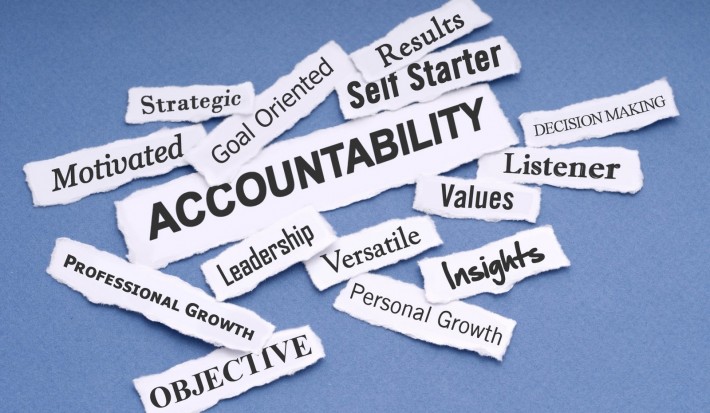It’s pretty easy to stay motivated with Japanese while in high school or college. You have class to go to each day, homework to do, tests to take, and grades to achieve. If you don’t keep up with your studies, you fail. Pretty decent motivation.
For the self-learner, there really aren’t the same sort of consequences. You skip doing Japanese for a week and you’re not punished at all. You’re actually rewarded. Rewarded with more time to play video games, watch TV, or go out with your friends. So how do you keep yourself motivated when there’s so much other fun stuff to do?
Habit, Habit, Habit

One of the most important factors of keeping motivation is developing it into a habit. Once something becomes a part of your daily routine, you’ll be much more likely to keep doing it from now until forever as it’s become second nature to you, just like walking the dog or brushing your teeth.
Lots of places on the internet say that it takes about twenty-one days to develop a habit. I personally feel that this is a very arbitrary number and how long it takes to develop a habit will very much depend on the activity and the person in question, but three weeks is a good starting point.

To make sure you stick to this habit of studying Japanese every day, every other day, or every week (especially in the beginning when the going is tough, and then once again when you reach the intermediate plateau) a great idea is to schedule your time. Actually block off time for activities during the day, or at the very least your Japanese. Physically write it down somewhere that you’re going to study Japanese from 7pm to 8pm Monday, Wednesday, and Friday, and set an alarm or something to remind you when it’s time.

It also helps to be specific. Instead of just writing “Study Japanese,” write stuff like “Study Anki Deck,” “Study WaniKani,” or “Study TextFugu.” This makes it much easier to get right into your study session instead of wasting time thinking about what method you want to use because you’ve already laid it out ahead of time.
I really like this method a lot and I use it often when I have a lot of stuff to get done in one day. I’ve also used it in the past to get into the habit of working out each day and I also used it for studying Japanese (and now French). I feel like I’m much more productive when I have my whole day mapped out in an Excel file or something and I waste way less time derping around the internet. Trust me, it works. Mapping out your day is absolutely wonderful for productivity and motivation.

You don’t have to take my word for it though, just check out this list of famous people and their daily rituals and scheduled activities. If it worked for them, it can work for you too.
But of course there will always be that one night you were planning to have a study session and out of the blue your friends show up and want to go see a movie, or play video games and hang out or something and you’d feel like a real jerk blowing them off to study Japanese. You just need to promise yourself that you’ll reschedule your study time for later so you don’t get behind.
It’s important to keep up with your learning, but you don’t want to become a social outcast because of it. Unless of course you’re already a social outcast, then in that case, study away!
Keep it Fun

Fun is a huge motivator. You’re a lot more likely to do something and keep up with it if it’s fun. So, it’s important to find study methods that both work well for you and aren’t boring as all get out. Some great ways are to study with video games, anime, and dramas.
It’s also important to keep your individual study sessions short enough so that you aren’t burnt out by the end of them. The sweet spot for me is usually about thirty minutes to an hour, but you should go with what works best for you and then you can schedule that block of time into your week like I mentioned above.

Studying with these materials is also very rewarding. It may seem terrible at first when you start studying with a drama or something because there are so many new words, but in the end when you can watch the entire show and not have to look up any words and you know exactly what’s going on and what’s being said, it’s a pretty amazing feeling.
You should also be sure to select material that’s suitable for your level of learning. If you’re at expert level, you shouldn’t be reading and watching kid’s material (unless you’re just looking for an ego boost), and if you’re a beginner, you shouldn’t be diving into news reports and technical manuals.

Children’s books and TV shows are a great place to get your feet wet, and they can really make you feel a lot more accomplished. Unless of course you have trouble understanding anything that’s going on in the kid’s show, in which case you’ll feel like an idiot (it’s happened to me more than once), but that’s something you just have to get over. You’ll understand it eventually, just be patient.
Accountability

Accountability is a great motivator. Tell someone else your plan for keeping up with your Japanese studies and let them know exactly what you plan to do, when you plan to achieve milestones, and how you’re going to get there. Tell as many people as you can. You could even have some of them remind you about it, or get some really good friends to ask you if you studied Japanese today or not. Having to be accountable to people about your learning is a great way of guilting yourself into being motivated.
This way, if you fail to keep up with your studies, you’re not only letting yourself down, but you’re letting down everyone you told about your grand plans. You don’t want all your friends to be disappointed in you, right? Accountability works wonders. Plus, when you do achieve your goals, you’ll not only be proud yourself, but you’ll also have lots of other people to be proud of you and support you along the way.
Accountability is a great way to motivate yourself to achieve goals. Just don’t annoy your friends and family by talking to them about it all the time (unless they’re studying Japanese too, then by all means, bug the crap out of each other), wouldn’t want to alienate yourself or anything. Just use your best judgment.
Keep at It

Once you’ve developed a good habit of studying Japanese and having fun with it, you’ll be an unstoppable Japanese learning machine. No longer do you need a classroom, nagging teacher, or the threat of bad grades to motivate you. You have a fun schedule you created yourself, awesome self-learning materials, accountability, and the self-satisfaction of making it on your own. Learning Japanese solo is entirely possible with the right materials and the right attitude. So get out there and JFDI.
